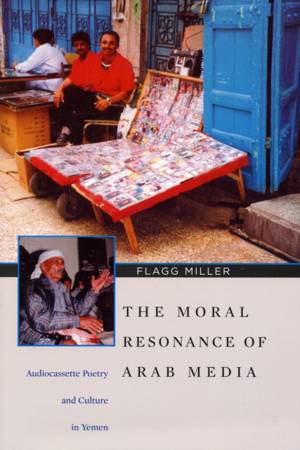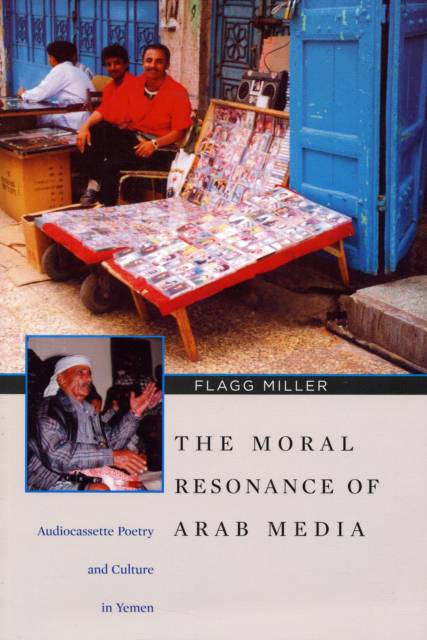
- Afhalen na 1 uur in een winkel met voorraad
- Gratis thuislevering in België vanaf € 30
- Ruim aanbod met 7 miljoen producten
- Afhalen na 1 uur in een winkel met voorraad
- Gratis thuislevering in België vanaf € 30
- Ruim aanbod met 7 miljoen producten
Zoeken
€ 34,95
+ 69 punten
Omschrijving
In a groundbreaking study of contemporary Arab political poetry, Flagg Miller provides a wide range of insights into the ways that modern media aesthetics are shaped by language and culture. Investigating a vibrant audio-recording industry in southern Yemen, The Moral Resonance of Arab Media shows how new forms of political activism emerge through sensory engagements with Arabic poetry and song. From the 1940s onward, a new cadre of political activists has used audio-recording technologies, especially the audiocassette, to redefine traditional Muslim authorship.
Cassette producers address conflicted views about the resurgence of tribalism by showing Yemenis how to adapt traditional mores toward more progressive and pluralistic aims. Skilled bards continue to perform orally marked tribal verse. As Miller demonstrates through an analysis of several centuries of changing media ecology, however, oral performance is anything but static. Much of the power of orality stems from its relation to writing, print, and audiovisual media that link tribal ideals with metropolitan and national discourses. Through an examination of the lives and works of individual poets, singers, and audiences, Moral Resonance shows how tribalism becomes a resource for critical reform when expressed in tropes of community, place, person, and history. Yemenis' use of audiocassettes turns such tropes into cultural resources for morally evaluating political liberalism.Specificaties
Betrokkenen
- Auteur(s):
- Uitgeverij:
Inhoud
- Aantal bladzijden:
- 512
- Taal:
- Engels
- Reeks:
- Reeksnummer:
- nr. 38
Eigenschappen
- Productcode (EAN):
- 9780932885326
- Verschijningsdatum:
- 1/09/2007
- Uitvoering:
- Paperback
- Formaat:
- Trade paperback (VS)
- Afmetingen:
- 141 mm x 208 mm
- Gewicht:
- 635 g

Alleen bij Standaard Boekhandel
+ 69 punten op je klantenkaart van Standaard Boekhandel
Beoordelingen
We publiceren alleen reviews die voldoen aan de voorwaarden voor reviews. Bekijk onze voorwaarden voor reviews.











